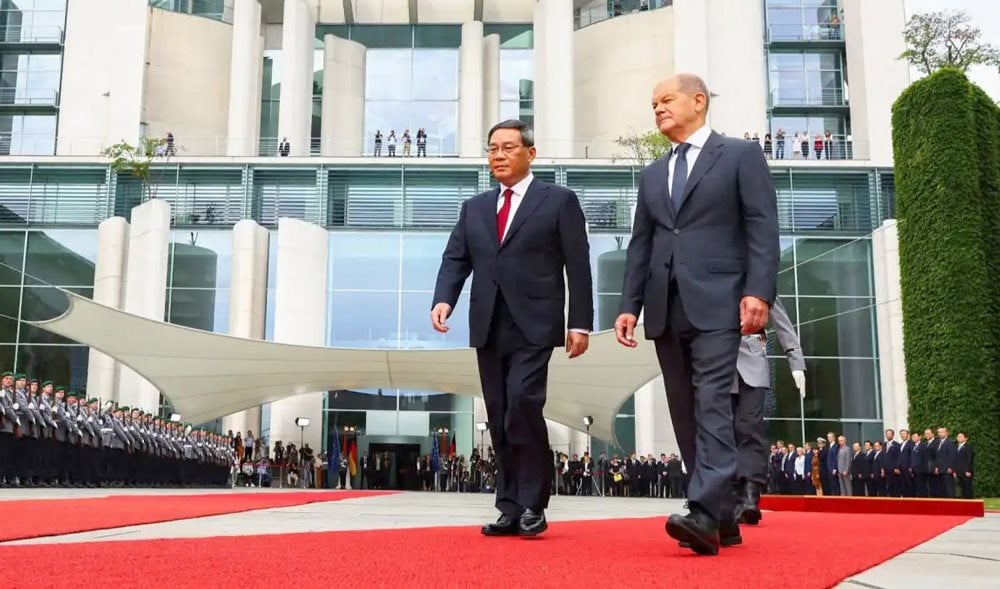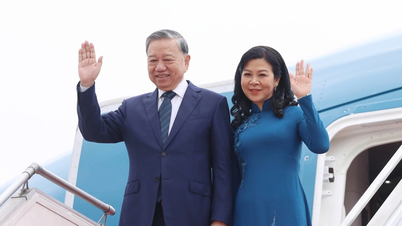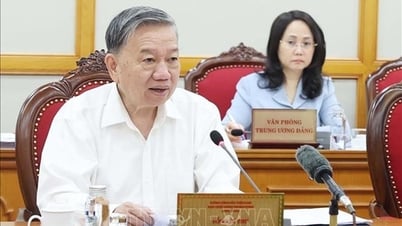
China-Germany relations have been going well over the past decade. China's rapid economic growth and its demand for German cars and technology have fueled the growth of Europe's number one economy. 2022 marked the seventh consecutive year that China has been Germany's largest trading partner, with trade worth around 300 billion euros. More than 5,000 German companies with 1.1 million employees are operating in the East Asian country. The German economy benefits greatly from its partner's cheap labor, abundant raw materials and huge domestic market.
In that context, it is not surprising that the two sides place each other in a strategic position in the development process amid many difficulties in the global economy. The importance is shown first of all by the first foreign trip of the new Chinese Premier Li Qiang. The statements of the leaders of the two countries also show the need to get closer.
Chinese Premier Li Qiang pointed out that the world today is in a new phase of change and it is necessary for China and Germany to maintain the tradition of bilateral friendship. “Lack of cooperation is the biggest risk, lack of development is the biggest insecurity,” Chinese Premier Li Qiang stressed when meeting with leading German companies. For his part, German Chancellor Olaf Scholz welcomed the visit and stressed the importance of the seventh round of government-level consultations between Germany and China, under the theme “Acting Together for Sustainability,” which Berlin only conducts with particularly close partners.
In addition to efforts to strengthen cooperation, observers say that China also wants to overcome differences with Germany in the context of a volatile world. Common understanding is especially important at this time when there are more and more "headwinds" affecting the bilateral relationship. Among them, it is necessary to mention the relationship between China and the US is becoming tense and the European Union (EU) wants to reduce its economic dependence on China as well as the impacts from the conflict in Ukraine... With the European Commission proposing a strategy to control investment and exports to China, Berlin's voice will be important in ensuring that the EU does not go too far in its decisions to regulate trade relations.
Germany, like some European countries, also wants China to play a supporting role against the risks that may arise from recent US policies. Washington's exploitation of Europe's energy shortage due to the Russia-Ukraine conflict to export liquefied natural gas (LNG) at four times the domestic price has been described as "unacceptable" to Germany. Meanwhile, the US Inflation Reduction Act (IRA) is ostensibly intended to support domestic industry during a period of supply chain disruption, but in reality it is protectionist in nature, causing German industries to lose their competitive edge.
However, these aspirations are currently facing some obstacles. There is a growing sense of wariness within Berlin over the mergers and acquisitions that leading Chinese companies are making with many German companies. There are also concerns about technology leaks and patents. Moreover, promoting cooperation with China at this time will require German Chancellor Olaf Scholz to be skillful in balancing relations with allies in the Group of Seven (G7): Canada, France, Italy, Japan, the UK and the US. For its part, Beijing has long been critical of Berlin’s stances on the conflict in Ukraine and on the issue of Taiwan (China).
In any case, the trend of a “win-win” relationship between Germany and China is obvious and can be seen as inevitable. Some differences of opinion certainly cannot prevent the two sides from seeking opportunities for cooperation. In this context, the visit of the Chinese Prime Minister is clearly a valuable opportunity for the two sides to sit down together, clearly define the direction and appropriate steps for the coming time.
Source


![[Photo] Bustling construction at key national traffic construction sites](https://vphoto.vietnam.vn/thumb/1200x675/vietnam/resource/IMAGE/2025/5/2/a99d56a8d6774aeab19bfccd372dc3e9)



![[Photo] Thousands of Buddhists wait to worship Buddha's relics in Binh Chanh district](https://vphoto.vietnam.vn/thumb/1200x675/vietnam/resource/IMAGE/2025/5/3/e25a3fc76a6b41a5ac5ddb93627f4a7a)






















![[Photo] "Lovely" moments on the 30/4 holiday](https://vphoto.vietnam.vn/thumb/1200x675/vietnam/resource/IMAGE/2025/5/1/26d5d698f36b498287397db9e2f9d16c)


































































Comment (0)